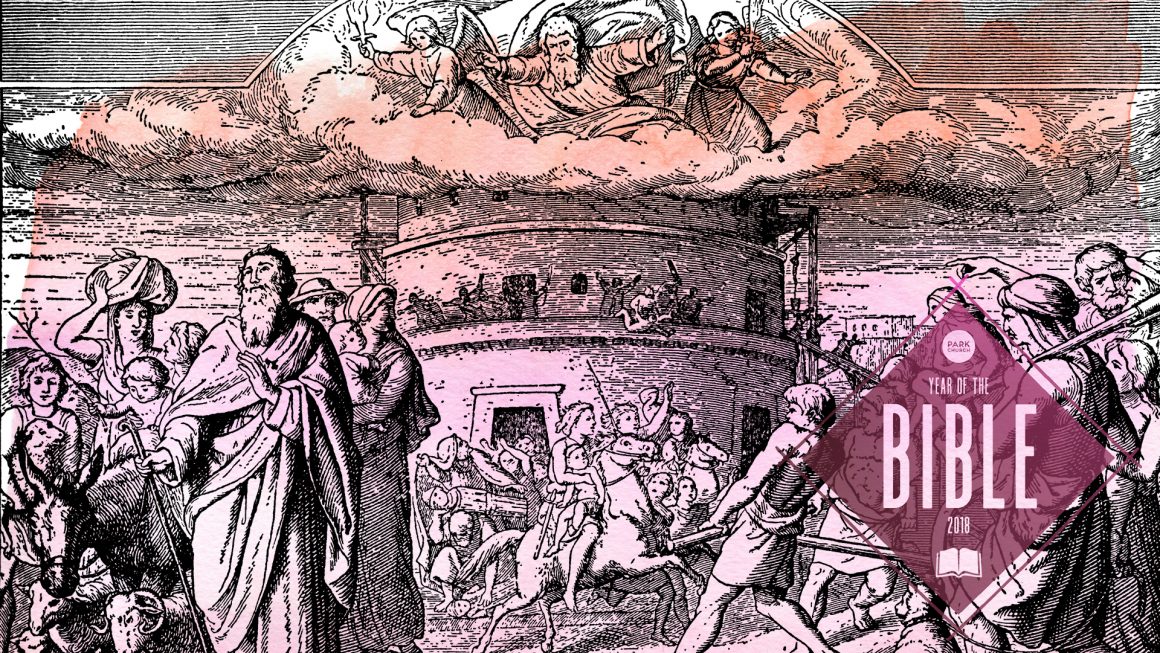Okay, Bible 201.
There’s a chance this might be a little complicated but this is one of my favorite episodes in the bible. It’s clever, and there’s a bit of humor to this story; I hope I can share that with you…. What I would like to share with you are a few details to the story that are observable in Hebrew but not so obvious in English (you will have to trust my study in this passage); so, a lot of what I will write about here will just point to the implications put forth by the original Hebraic version of the story. I will leave current cultural implications up to you.
Genesis 11 tells us about the building of a tower in a place called Babel, in the land of Shinar. The Hebrew language is plump with meaning. Being a very concise language a lot can be said with very few words. One way this is done is by ascribing meaningful names to people and places. In this instance, we see in the backstory of our episode that the city of Babel was founded by this guy named “Nimrod,” (Gen.10:10). Interestingly enough, the word “Nimrod” is equivalent to the Hebrew verb for “we will rebel.” There is nothing particularly striking about this in and of itself but, if we consider the rest of the story this observation may prove noteworthy; just saying.
The details about the construction of the tower are worth looking at; first, let’s consider the motive put forth in scripture, “Come, let us build for ourselves a city, and let us make for ourselves a name, otherwise we will be scattered abroad over the face of the whole earth,” (v.4). I emphasized “a name” here because in ancient times that was the equivalent to “a reputation.” It could certainly indicate status or fame. While it is not obvious in English is that there does seem to be a phonetic resonance, similar to rhyming, between the words “place (or there)” and “name”. In Hebrew the word “place, or there” is sham, and the word for “name” is shame. So, even reading in English you can see the connection between the “place” and the establishment of man’s reputation, “name” depicted in the passage. One more detail will help to frame this picture. It seems the word “Babel” in ancient Ugarit (the language of the Canaanite people) means “gate of the gods.”
So as the story goes united in a common language mankind decides to make a name for themselves by building a tower into the heavens in a place called “Babel” or “gate of the gods.” They propose to accomplish their plan by making bricks. God’s comment in verse 6 is what first drew me in to study this passage, “Behold, they are one people, and they all have the same language. And this is what they began to do, and now nothing which they propose to do will be withheld from them.” At first glance it might seem like God is somewhat threatened by this human endeavor. The previous verse, however, assures us of God’s supremacy as he “comes down” to take a look at their tower. The picture is a bit humorous considering the fact that no matter how high they manage to make the tower it will never reach God’s abode. The point highlighted by God’s comment is that through mankind’s unified inventions, in this case making bricks to build a place for their elevated status, they became emboldened even to the point of seeing themselves as gods; that is worthy of a heavenly abode. In my estimation this kind of attitude is equivalent to the name of Babel’s founder, Nimrod, “we will rebel.” God decides to remedy the situation by confusing their language. Unable to properly organize themselves under a unified speech mankind is dispersed from their collective effort.
The solution of a confused language does more than provide a remedy to a problem. As I mentioned in an earlier post that Genesis 1-11 provides themes that are meant to guide our thinking through the rest of scripture. This final episode which tells us about the building of a tower into the heavens gives us a theme that stretches through the Old Testament right into the last chapter of the bible, Revelation. As it turns out the punch line of the story shows us it’s not really about the tower but about the place. One more insight into the Hebrew language will make my point.
The word for “confuse” in Hebrew is balal. Again there is some rhyming going on here in the last line of the passage, “Therefore its name (shame) was called Babel (baval), because there (sham) the LORD confused (balal) the language of the whole earth,” (Gen.11:9). It may be difficult to grasp but the close resemblance between baval and balal signifies a name change. It seems the translators of the Septuagint [1] picked up on this word play as they rendered verse 9 this way, “On this account its name was called Confusion, because there the Lord confounded the languages of all the earth.” To put it another way, a loose interpretive paraphrase of what is being put forth in verse 9 might be, “And so the place that was called by them the gate of the gods is the place of confusion.”
Whether you accept this or not, it is noteworthy that “Babel” is a theme that extends through the entirety of scripture. It is the place to where the Israelites are exiled on account of their idolatrous practices. [2] From there we see righteous Daniel confessing on behalf of the Jewish nation, “To the Lord our God belong compassion and forgiveness, for we have rebelled (the same verb as in “Nimrod”) against him,” (Dan.9:9). We also see Babel at the end of the bible where a call is put forth “Come out of her, my people, so that you will not participate in her sins and receive her plaques; for her sins have piled up as high as heaven (remember the tower?), and God has remembered her iniquities,” (Rev.18:4-5).
I reiterate what I said in the beginning, this may be a little complicated.
At the same time, if you have made it this far you have probably understood most of what I have said. In any event, I hope this rather extended blog has helped to introduce you to the beautiful literature of the bible and specifically to the importance of the “first things” in Genesis 1-11 which are meant to guide our thinking through the rest of scripture.
The God who descended to observe the meager work at Babel has descended into the land of confusion in the person of Jesus Christ to provide the way for us to reach his heavenly abode.
Read on and get to know him.
[1] The Septuagint is a Greek translation of the Hebrew Bible written approximately 100 BCE.
[2] FYI Babylon and Babel are synonymous. “Babylon” is the Greek version of the Hebrew “Babel”.



